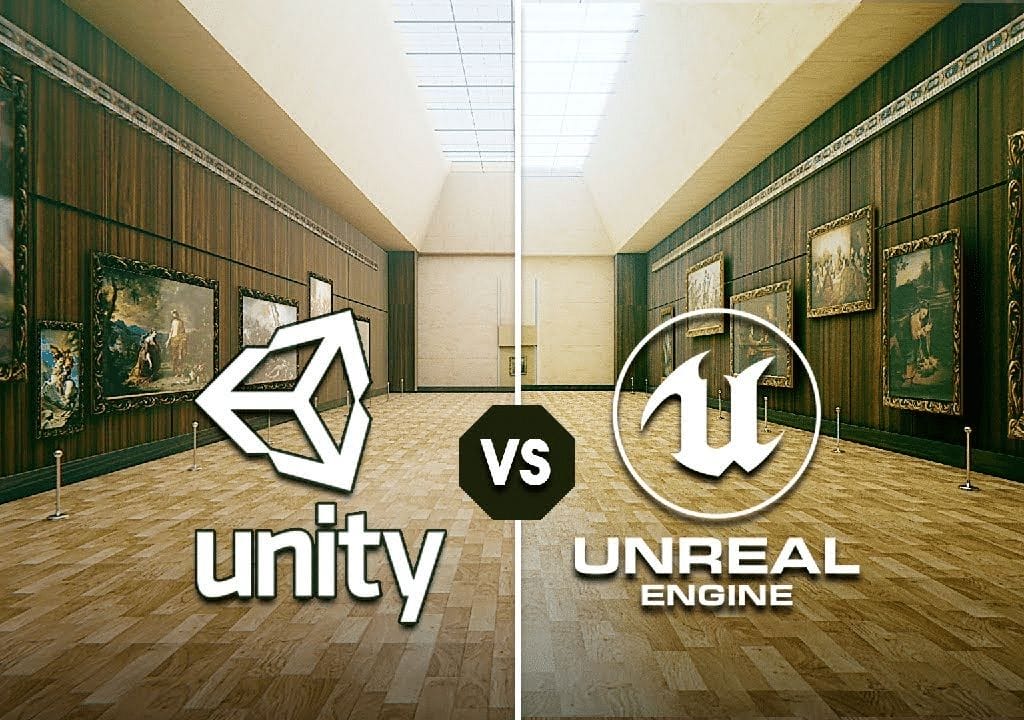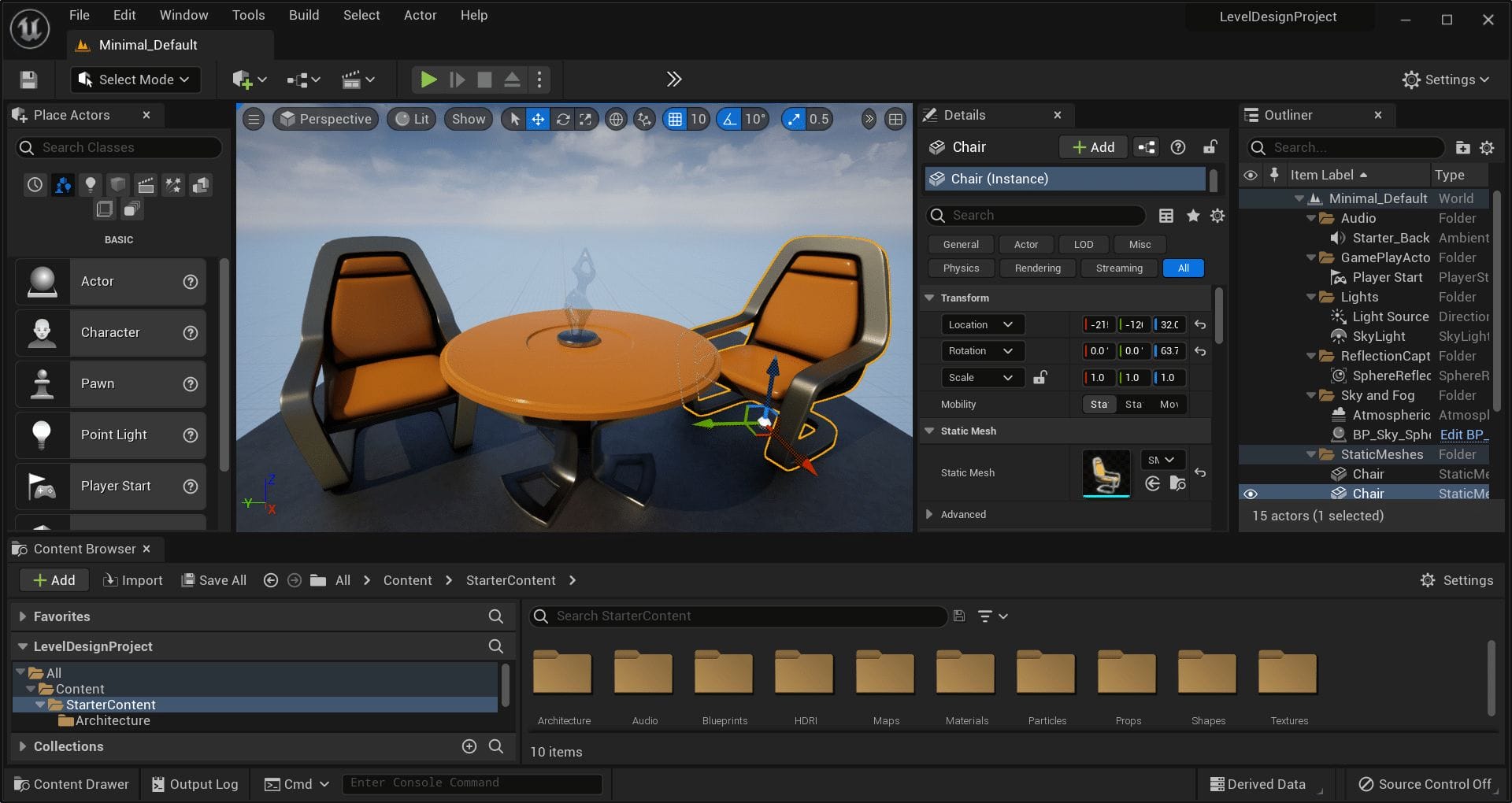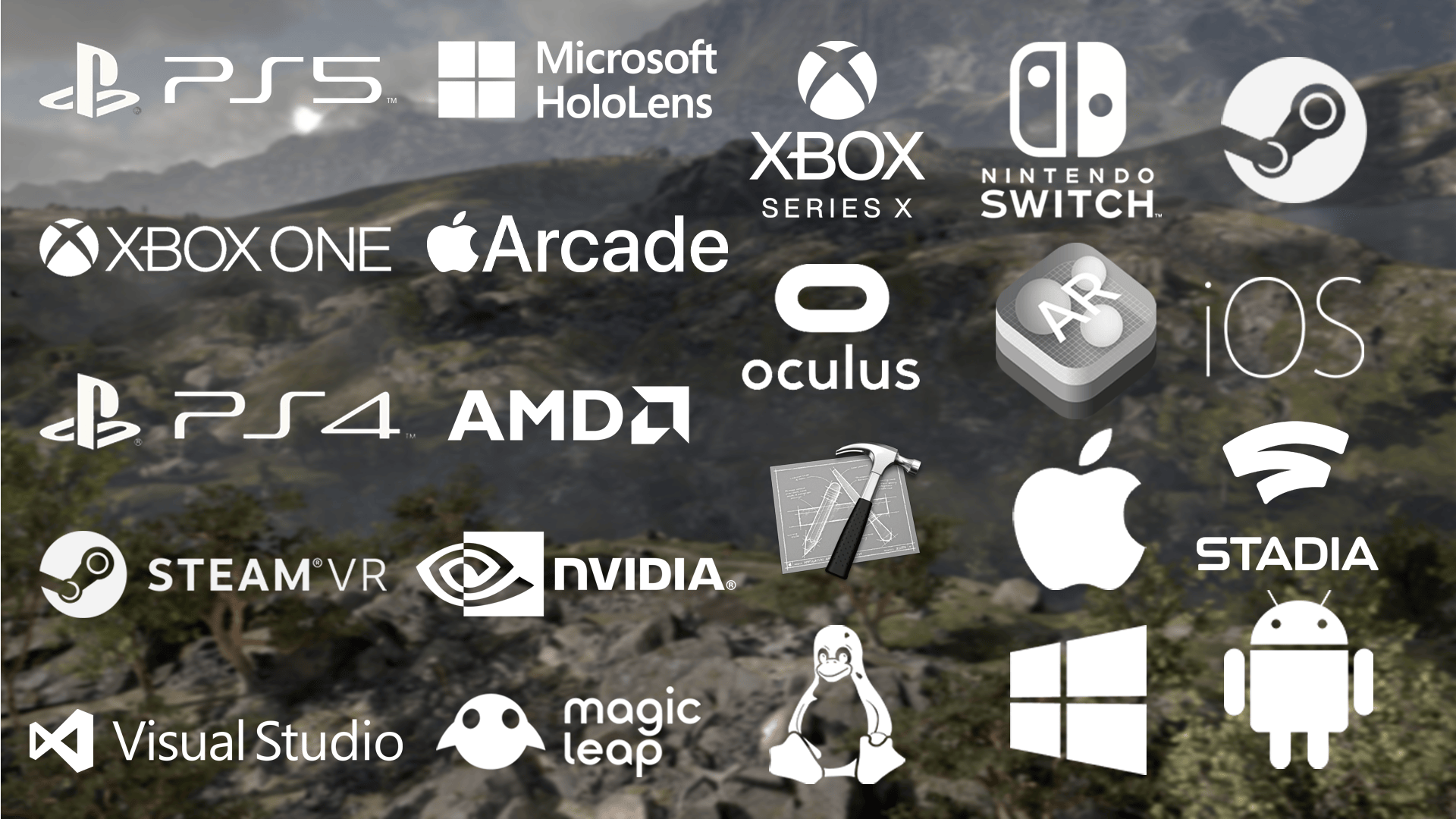Unity vs Unreal Engine 2023? Unity and Unreal Engine are two of the most popular game engines in the industry. Both engines are widely used for creating 2D and 3D games for various platforms such as PC, console, mobile, and VR/AR.
However, each engine has its own strengths and weaknesses, and the choice of which engine to use will depend on the specific needs of your project and your own personal preferences.

Two DIfferent Engines with two different roadmaps
Game development is a rapidly evolving field, and the tools and technology used to create games have changed dramatically over the years. Two of the most popular game engines in the industry today are Unity and Unreal Engine. These engines are widely used for creating 2D and 3D games for various platforms such as PC, console, mobile, and VR/AR.
Unity was first released in 2005, it was developed by Unity Technologies, a Danish company. Initially, it was focused on creating games for Mac and Windows, but over the years, it has expanded its platform support to include iOS, Android, WebGL, and many more. Unity is known for its ease of use, flexibility, and a large community that provides a wealth of tutorials, documentation, and pre-made assets to help speed up the development process.
Unreal Engine, on the other hand, was first released in 1998, it was developed by Epic Games, an American company. Originally, it was focused on creating first-person shooters for PC, but over the years, it has expanded its platform support to include iOS, Android, WebGL, and many more. Unreal Engine is known for its powerful graphics capabilities, which make it a great choice for creating high-end 3D games, especially for the console and PC platforms.
Both Unity and Unreal Engine have a long history of development and have been evolving over the years, gaining new features, and expanding the platform support, allowing developers to create even more advanced and engaging games. In this article, we will be discussing various aspects of these game engines, comparing their strengths and weaknesses, and providing examples of when you would use each engine.
General Comparison

Unity
Some of the main features of Unity are:
- Has a built-in 2D and 3D physics engine that allows for realistic physics simulations in your game.
- Has a built-in animation system that allows you to create animations for characters and objects in your game.
- Has a scripting system that is based on C# which is a widely used language in game development and it’s relatively easy to learn.
- Has a large number of built-in features, such as lighting and particle systems, which can help speed up the development process.
- Has a large community and a vast asset store, which makes it easy to find tutorials, documentation, and premade assets to help speed up the development process.
- Supports a wide range of platforms, including Windows, Mac, iOS, Android, WebGL, and many more.
- Has a free version that can be used for personal or commercial use, but with some features locked and some royalties to pay.

Unreal Engine
Some of the main features of Unreal are:
- Has a powerful real-time rendering engine that allows you to create high-quality 3D graphics, and it’s widely used in the industry.
- Has a visual scripting system called Blueprints that allows you to create game logic without the need for programming knowledge.
- Has a built-in physics engine that allows for realistic physics simulations in your game.
- Has a built-in animation system that allows you to create animations for characters and objects in your game.
- Has a built-in sound engine that allows you to create and implement sound effects and music in your game.
- Supports a wide range of platforms, including Windows, Mac, iOS, Android, WebGL, and many more.
- Free to use but with a 5% royalty on the gross revenue after the first $3000 per product, per quarter.
Both Unity and Unreal Engine are powerful game engines that can be used to create a wide range of games. However, the choice of which engine to use will depend on the specific needs of your project. Unity is a more accessible choice for beginners, and Unreal Engine is better suited for creating high-end 3D games. It’s also important to consider the target platform, the experience of the team, the budget, and the time frame of the project when making the decision.
performance and visual quality

- Both Unity and Unreal Engine have powerful graphics capabilities and can be used to create visually impressive games. However, Unreal Engine is known for its high-end graphics capabilities, and is often used for creating AAA games that require advanced visual effects and realistic graphics. Unity, on the other hand, is known for its flexibility, and can be used to create games with a wide range of graphics styles, from 2D games to 3D games with high-quality graphics.
- In terms of performance, Unreal Engine is considered to be more optimized for high-end graphics and can be more demanding on hardware resources compared to Unity. However, Unity is known for its good performance on low-end devices and it’s more optimized for mobile platforms.
If you are looking to create a game with high-end graphics and advanced visual effects, Unreal Engine might be a better choice. However, if you are looking to create a game that runs smoothly on a wide range of devices, Unity might be a better choice.
from a point of portability
Both Unity and Unreal Engine support a wide range of platforms and can be used to create games for various platforms such as PC, console, mobile, and VR/AR. However, Unity is considered to be more portable and it is known for its flexibility in terms of platform support. Unity supports a wide range of platforms including Windows, Mac, iOS, Android, WebGL, and many more. Additionally, Unity has a large community and a vast asset store, which makes it easy to find tutorials, documentation, and premade assets for different platforms.

Unreal Engine also supports a wide range of platforms including Windows, Mac, iOS, Android, WebGL, and many more. However, Unreal Engine is considered to be less portable compared to Unity and it may require more effort to port a game from one platform to another.
In general, Unity is considered to be more portable and flexible in terms of platform support, which makes it a good choice for developers who want to target multiple platforms. Unreal Engine is also a good choice for developers who want to target multiple platforms, but it may require more effort to port a game from one platform to another.
FUTURE potential of each engine
Sure, here are examples of usage of Unity and Unreal Engine in and out of the game industry and an evaluation of their potential:
Unity
- Widely used in the game industry for creating 2D and 3D games for various platforms such as PC, console, mobile, and VR/AR. Some well-known examples of games that were developed using Unity include Pokémon Go, Angry Birds 2, and Subnautica.
- Used in other industries such as architectural visualization, automotive and transportation, education, and film and television.
- Has a lot of potential for the future, given its ease of use, flexibility, and large community. Unity is also investing in new technologies such as machine learning and augmented reality, which will allow developers to create even more advanced and engaging games.
Unreal Engine
- Widely used in the game industry for creating high-end 3D games for PC, console, and mobile platforms. Some well-known examples of games that were developed using Unreal Engine include Fortnite, Gears 5, and Street Fighter V.
- Used in other industries such as architecture, automotive, and film and television.
- Has a lot of potential for the future, given its powerful graphics capabilities and active development team. Unreal Engine is also investing in new technologies such as virtual reality and real-time ray tracing, which will allow developers to create even more realistic and immersive gaming experiences.
Conclusion
Both Unity and Unreal Engine have a lot of potential for the future, and they are both widely used in the game industry and other industries. Unity is a more accessible choice for beginners and indie developers, while Unreal Engine is better suited for creating high-end 3D games. Ultimately, the choice of which engine to use will depend on the specific needs of your project and your own personal preferences.
If you liked this article, why don´t you consider leaving a comment with your own opinion. If you want to read more about Unreal and Unity engines, you can find more interesting content on our blog.
A game developer that wants to share its knowledge and experience with other game developers-





